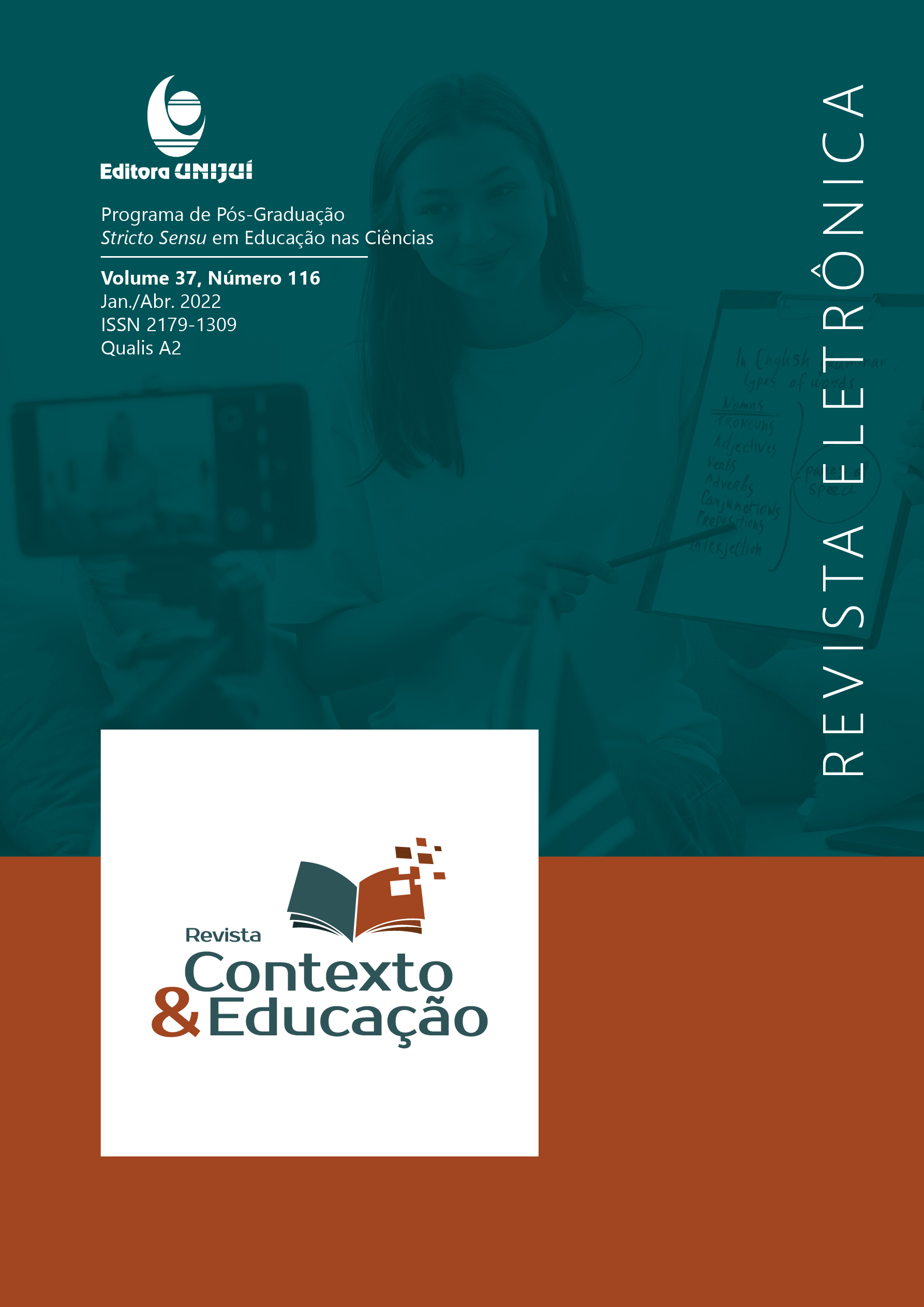PARTICIPATIVE MANAGEMENT IN PEDAGOGICAL SPACES: AN ANALYSIS OF A PROFESSIONAL AND TECHNOLOGICAL EDUCATION INSTITUTION IN THE NORTH REGION OF BRAZIL
GESTÃO PARTICIPATIVA EM ESPAÇOS PEDAGÓGICOS: ANÁLISE DE UMA INSTITUIÇÃO DE EDUCAÇÃO PROFISSIONAL E TECNOLÓGICA DO NORTE DO BRASIL
DOI:
https://doi.org/10.21527/2179-1309.2022.116.10070Palavras-chave:
Gestão participativa. Estratégias educacionais. Espaço Pedagógico. Estratégias organizacionais.Resumo
The present study sought to analyze whether the strategies implemented in one of the pedagogical spaces of a professional and technological education institution in Northern Brazil can be considered participatory. The methodological path consisted of data collection made through a semi-structured interview script with the participants to formulate and implement strategies for conducting a mini-course on the Moodle platform, the studied pedagogical space. The data were organized, analyzed, and interpreted using semantic and content analysis techniques. The results showed that a) the respondents have different perceptions about the objectives of the course, b) presented different views about the stages of the project’s execution, c) there was a harmony of their perceptions about the benefits of the project, and d) the respondents were unanimous in considering that there were many setbacks for the practice of participatory management. The conclusion shows no full participation in the formulation and execution of the analyzed pedagogical space strategies.
Downloads
Publicado
Como Citar
Edição
Seção
Licença
Ao publicar na Revista Contexto & Educação, os autores concordam com os seguintes termos:
Os trabalhos seguem a licença Creative Commons Atribuição 4.0 Internacional (CC BY 4.0), que permite:
Compartilhar — copiar e redistribuir o material em qualquer meio ou formato;
Adaptar — remixar, transformar e criar a partir do material para qualquer fim, inclusive comercial.
Essas permissões são irrevogáveis, desde que respeitados os seguintes termos:
Atribuição — os autores devem ser devidamente creditados, com link para a licença e indicação de eventuais alterações realizadas.
Sem restrições adicionais — não podem ser aplicadas condições legais ou tecnológicas que restrinjam o uso permitido pela licença.
Avisos:
A licença não se aplica a elementos em domínio público ou cobertos por exceções legais.
A licença não garante todos os direitos necessários para usos específicos (ex.: direitos de imagem, privacidade ou morais).
A revista não se responsabiliza pelas opiniões expressas nos artigos, que são de exclusiva responsabilidade dos autores. O Editor, com o apoio do Comitê Editorial, reserva-se o direito de sugerir ou solicitar modificações quando necessário.
Somente serão aceitos artigos científicos originais, com resultados de pesquisas de interesse que não tenham sido publicados nem submetidos simultaneamente a outro periódico com o mesmo objetivo.
A menção a marcas comerciais ou produtos específicos destina-se apenas à identificação, sem qualquer vínculo promocional por parte dos autores ou da revista.
Contrato de Licença (para artigos publicados a partir de outubro/2025): Os autores mantém os direitos autorais sobre seu artigo, e concedem a Revista Contexto & Educação o direito de primeira publicação.


